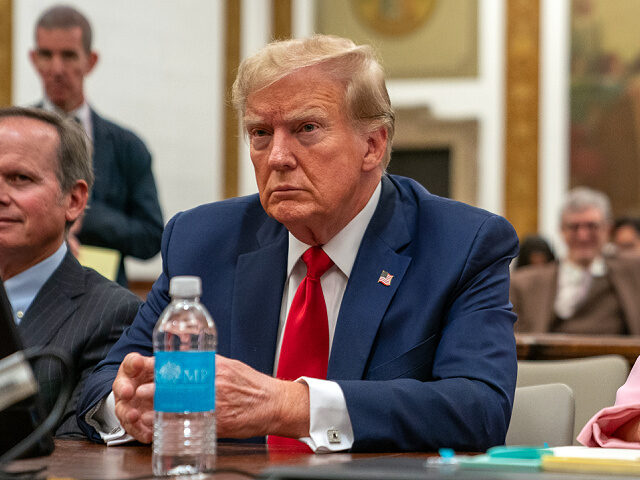The Republican National Committee (RNC) and National Republican Congressional Committee (NRCC) are the latest to file an amicus brief in support of former President Donald Trump’s appeal of the Colorado Supreme Court’s decision deeming Trump ineligible to appear on the ballot in the state, describing that ruling as “historically implausible.”
“This case arises from an historically unprecedented attempt to remove a presidential candidate from the ballot based on a reimagining of Section 3 of the Fourteenth Amendment,” or the Insurrection Clause, a summary of the argument reads, highlighting similar attempts to do so in recent months.
However, the RNC and NRCC observe that the Colorado Supreme Court “was the first to take the bait.”
“It should have taken the other path. Given the obvious risk of escalation as political opponents fight to have each other removed from the ballot, even President Trump’s most public critics hope that cooler heads prevail,” it reads.
Further, the brief argues that the Colorado Supreme Court’s 4-3 decision is “historically implausible.”
The summary of the argument reads in part:
The Colorado Supreme Court’s decision is historically implausible. According to the court, the Reconstruction Congress in ratifying Section Three of the Fourteenth Amendment gave States—including former Confederate States—the power to independently decide national candidates’ qualifications with no congressional permission. Its decision means the Reconstruction Congress gifted state officials the power to unilaterally displace the people’s ability to select the candidate of their choice for federal office.
The ratifiers of the Fourteenth Amendment did no such thing. They designed the Reconstruction Amendments to weaken the ability of state governments to disrupt the mechanisms of the national government. To conclude otherwise, the Colorado Supreme Court made a slew of legal errors that this Court should reject. First, state courts are the wrong forum for this dispute. The Colorado Supreme Court rewrote the text of Section Three to prohibit not just “hold[ing] office” but running for it. Second, the court’s relief would interfere with political-party primaries, violating Republicans’ First Amendment rights. Finally, the court misread the text and history to apply Section Three to 3 former Presidents, even though the text, history, and tradition make clear Section Three references the Article VI oath of office that Presidents do not take.
While the brief made it clear that the National Republican Amici does not take sides in the GOP primary when it comes to individual candidates, it argues that the Colorado Supreme Court’s decision “threatens massive upheaval to the political process and future national candidates of all parties.”
Because of that, the RNC and NRCC contend that the U.S. Supreme Court should “grant certiorari and reject the Colorado Supreme Court’s reimagination of Section Three.”
“The RNC and NRCC are fighting in the Supreme Court to ensure that the American people have the right to choose their president. Liberal judges and bureaucrats do not outweigh the voice of the voters,” RNC Chairwoman Ronna McDaniel said in a statement, describing these efforts as “an attack on our electoral system” and a form of election interference. NRCC Chairman Richard Hudson (R-NC) said the organization is “proud to partner with the RNC to ensure voters’ voices are heard, not overridden by partisan justices.”
“In the United States of America, the people decide their president – not anyone else. This is election interference thinly veiled as a legal decision, and the Supreme Court must act to preserve voters’ right to make their own determination at the ballot box,” he added.
The latest brief follows an amicus brief filed by the National Republican Senatorial Committee (NRSC), which similarly argued that the Colorado Supreme Court “misapplied the Constitution to impermissibly exclude a candidate for federal office from the ballot in the Republican Party’s upcoming primary election.”
The case is Trump v. Anderson, No.23-719 in the Supreme Court of the United States.

COMMENTS
Please let us know if you're having issues with commenting.